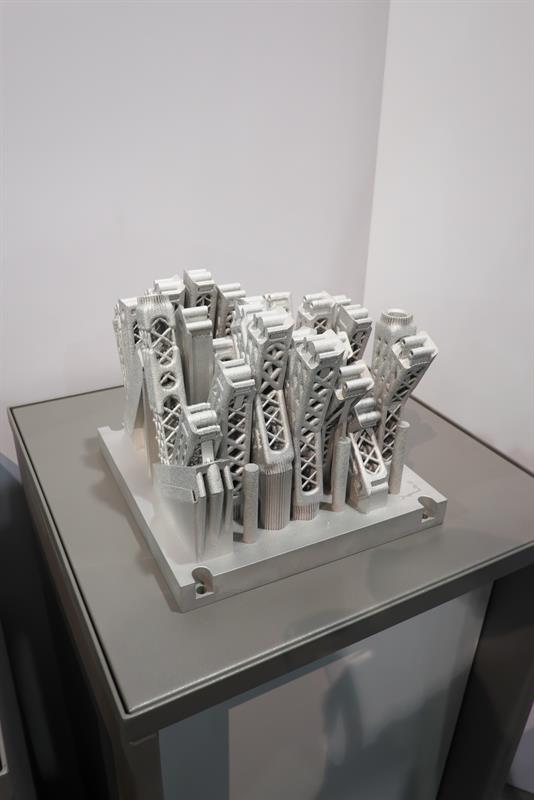The Bionic Partition divides the seating area and the galley of an airplane. Challenges in making it took in allowing for a cut-out area for emergency stretcher access and an attached fold down seat for cabin attendants.
Using Autodesk generative design software that made use of certain design constraints and cloud computing to analyse and present many potential solutions, the result produced a frame that weighs 45% less than conventional partitions, due to design design/construction optimisation and the use of Scalmalloy. The weight reduction results in fuel savings and reductions in CO2 emissions of 10 tons per aircraft per annum.
The partition can be installed in existing aircraft cabins and, if required, individual components can be easily replaced. An additional benefit is that the material used is completely recyclable.

The Bionic Partition is made from an AM-produced kit of parts
In the jury statement, Professor Matthias Held, professor at the School of Design Schwäbisch Gmünd and board member of the German Society for Design Theory and Research DGTF, noted: “With the ‘Bionic Partition Wall’, Airbus is demonstrating, in exemplary fashion, the different possibilities offered by additive manufacturing. The branch-like structures give an insight into the formal-aesthetic potential of topological optimisation.”
Since 2012, the German Federal Ecodesign Award has been granted annually by the Federal Environment Ministry (BMUB) and the Federal Environment Agency (UBA) in cooperation with the International Design Center Berlin (IDZ). The Ecodesign Award recognizes and honours pioneers in the field of ecological design.



